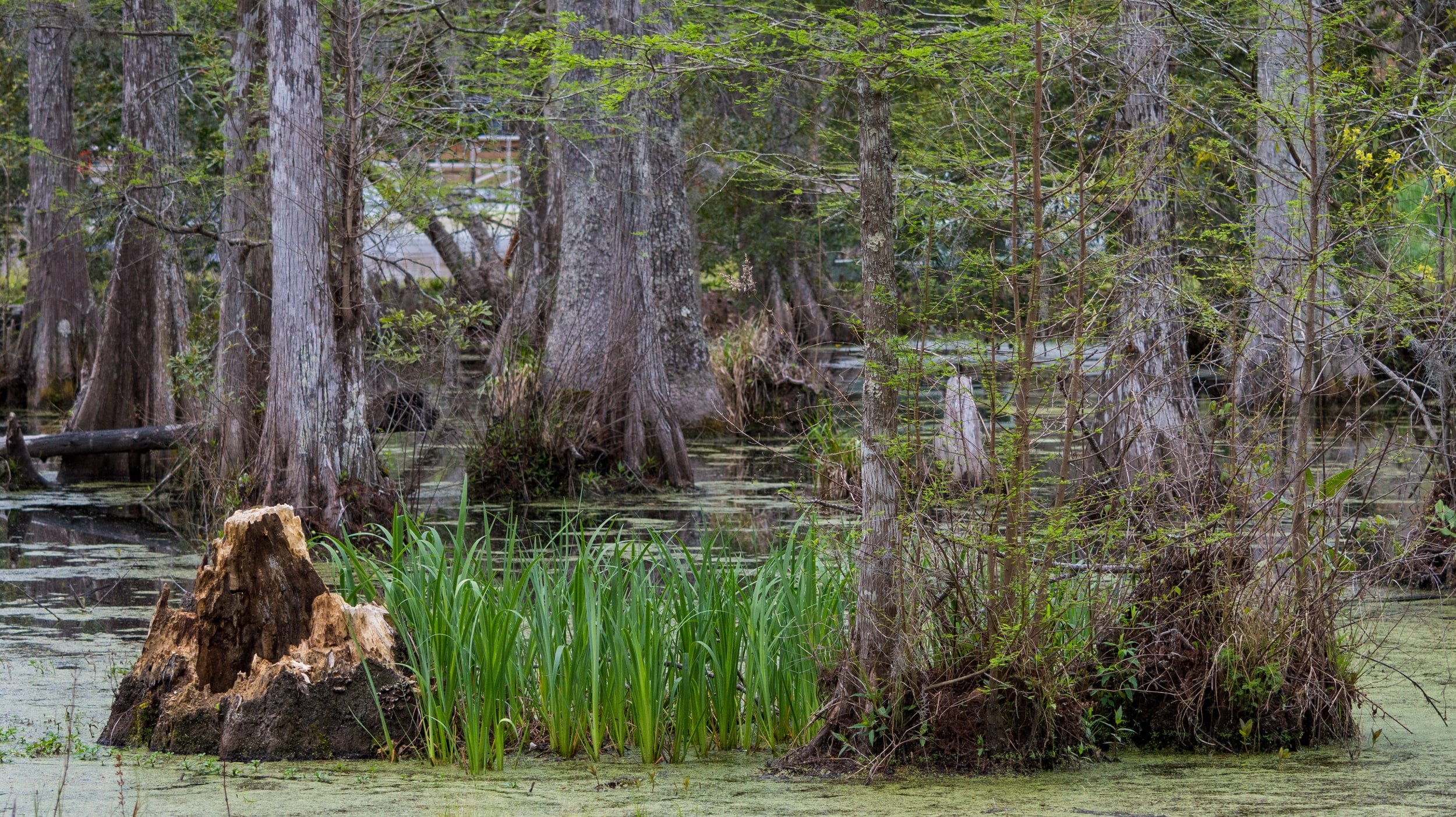
2024 South Carolina Forests & Water Consortium
Bringing together forestry and water sectors in our state.
Forum Goals & Objectives
The purpose of this Consortium is to bring together representatives from forestry, water, and other natural resource sectors to discuss the shared values between forestry and water in our state.
Our goals for this Consortium are to enhance collaboration between these sectors and create a clearinghouse of information and funding within the state. The theme for this years event is Sourcewater.
2024 Headlining Speakers
-
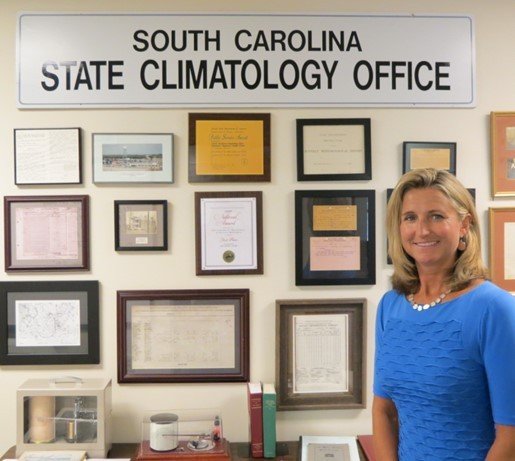
HOPE MIZZELL
STATE CLIMATOLGIST, SOUTH CAROLINA CLIMATOLOGY OFFICE
As State Climatologist, Hope ‘s responsibilities include providing climatic information and meteorological interpretations, certifying climate records, overseeing the State’s Drought Response Program, providing emergency weather support; and conducting applied research to improve decision making activities. She has authored or co-authored studies on topics ranging from extreme rainfall, flooding, drought, and climate trends and variability.
The South Carolina State Climatology Office has created a Drought Planning Guidebook, a new drought planning resource specifically for water utilities in South Carolina. This resource contains "best practices" collected from water utilities across the state that could be applicable to other utilities when updating their local drought management plan and response ordinance. The guidebook can be accessed at http://scdrought.com/planning.html, along with other information about drought planning in the state.
-
GRANT BUCKNER
WATERSHED MANAGER - NORTHERN BASIN, CATAWBA RIVERKEEPER
As the Watershed Manager of the Northern Basin, he works to advance the goals of the Catawba Riverkeeper Foundation. Grant collaborates with Lake James Environmental Association, Foothills Conservancy of North Carolina, and a variety of other stakeholders to create, plan and prioritize a list of projects that will improve water quality in the Northern Basin. Additionally, he helps the Catawba Riverkeeper coordinate & implement current projects such as the Swim Guide Program.
Grant is a native of Western North Carolina. He received his Bachelors of Science in Biology from the University of North Carolina at Asheville and his Masters of Science in Biology at the Appalachian State University. For his master’s thesis, he focused on biomonitoring using aquatic insects in Central America. Before joining the Catawba Riverkeeper Foundation, Grant worked as an Adjunct Lab Instructor in the Biology Department at Appalachian State University. Grant’s passion for protecting rivers stems from fly fishing while growing up in Western North Carolina. In his free time, Grant enjoys birding, wildlife photography, and fly fishing.
PRESENTATION: Overview of a pilot project for the restoration of a small Piedmont stream using beaver dam analogs. Discussing the process from permitting through construction to results from monitoring thus far. Providing an example of what challenges remain for beaver dam analog restoration in the Southeast and where we go from here to better understand the ability of beaver dam analogs to be used for restoration.
-
EDWARD BUCHAN
ENVIRONMENTAL COORDINATOR, CITY OF RALEIGH
Responsible for managing the City's water conservation program and cross connection program. I am also involved in developing source water protection strategies and water quality monitoring prorgams. Plus, I try to keep the media up to date on City related environmental issues.
-
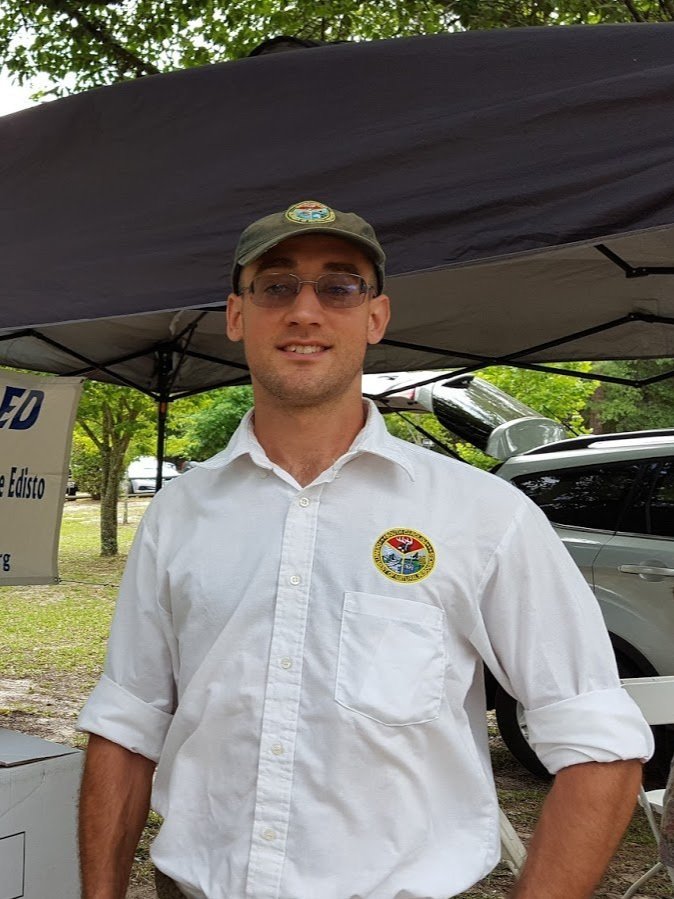
ALEX PELLETT
HYDROLOGIST, SOUTH CAROLINA DEPARTMENT OF NATURAL RESOURCES
Alex works as a hydrologist on water planning for the State of South Carolina, mostly surface water modeling, water use, and water demand projections.
I’d like to share my experience practicing low-tech restoration for incised channels in the Piedmont, including historical context, an overview of relevant regulations, recent research studies, and opportunities for scalable and cost-effective projects.” Please adjust the wording to fit the context, if that makes sense to you.
-
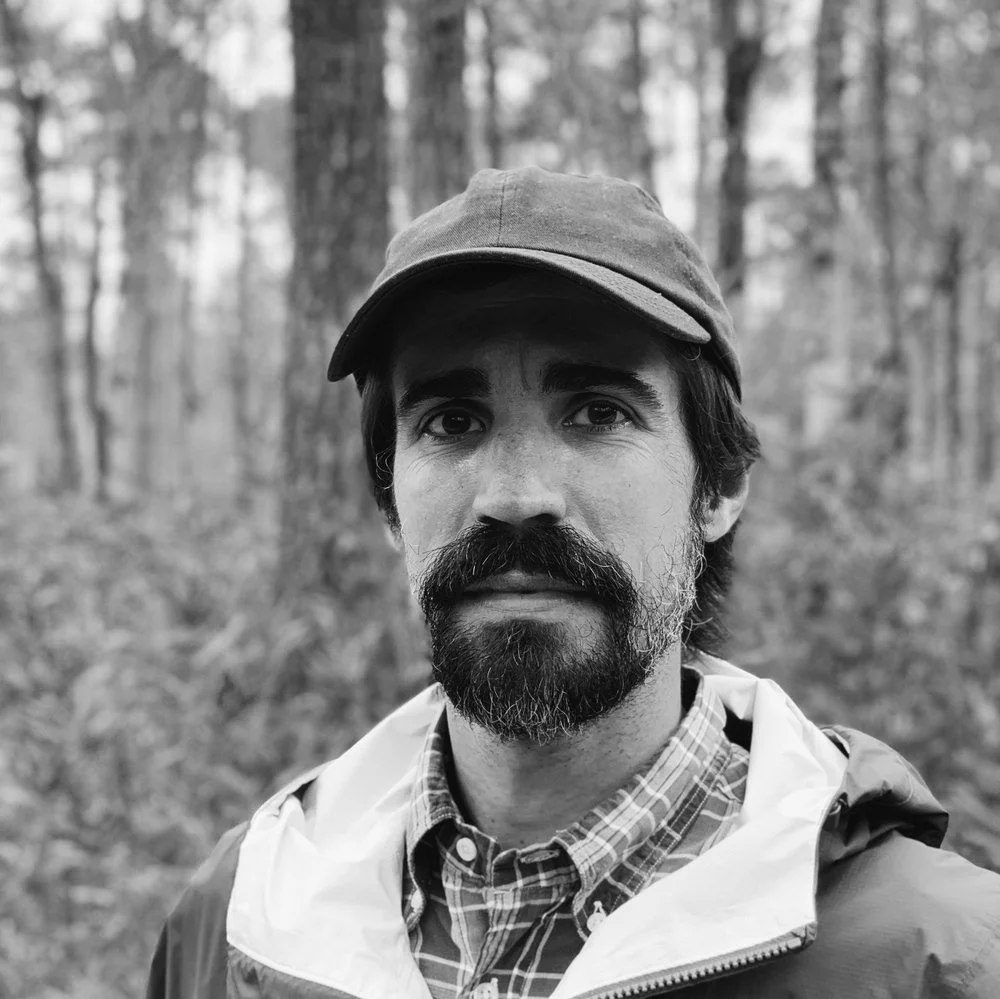
JOSHUA ROBINSON
PRINCIPAL ENGINEER, ROBINSON DESIGN ENGINEERS
Established in 2008, Robinson Design Engineers is an award-winning team of hydrologists and engineers engaged in thoughtful and creative problem solving and design for a variety of project types. From our offices in Charleston, SC and Hendersonville, NC, we work with institutions, municipalities, design professionals, and non profits across the Southeast and Mid-Atlantic.
We have reclaimed the service oriented, professional practice model of engineering consulting, and we follow an intentional, responsive, rigorous consulting process.
We believe in the intrinsic value of natural resources and the fundamental importance of built infrastructure, and we work to promote the harmony and sustainability of ecological and human communities.
-
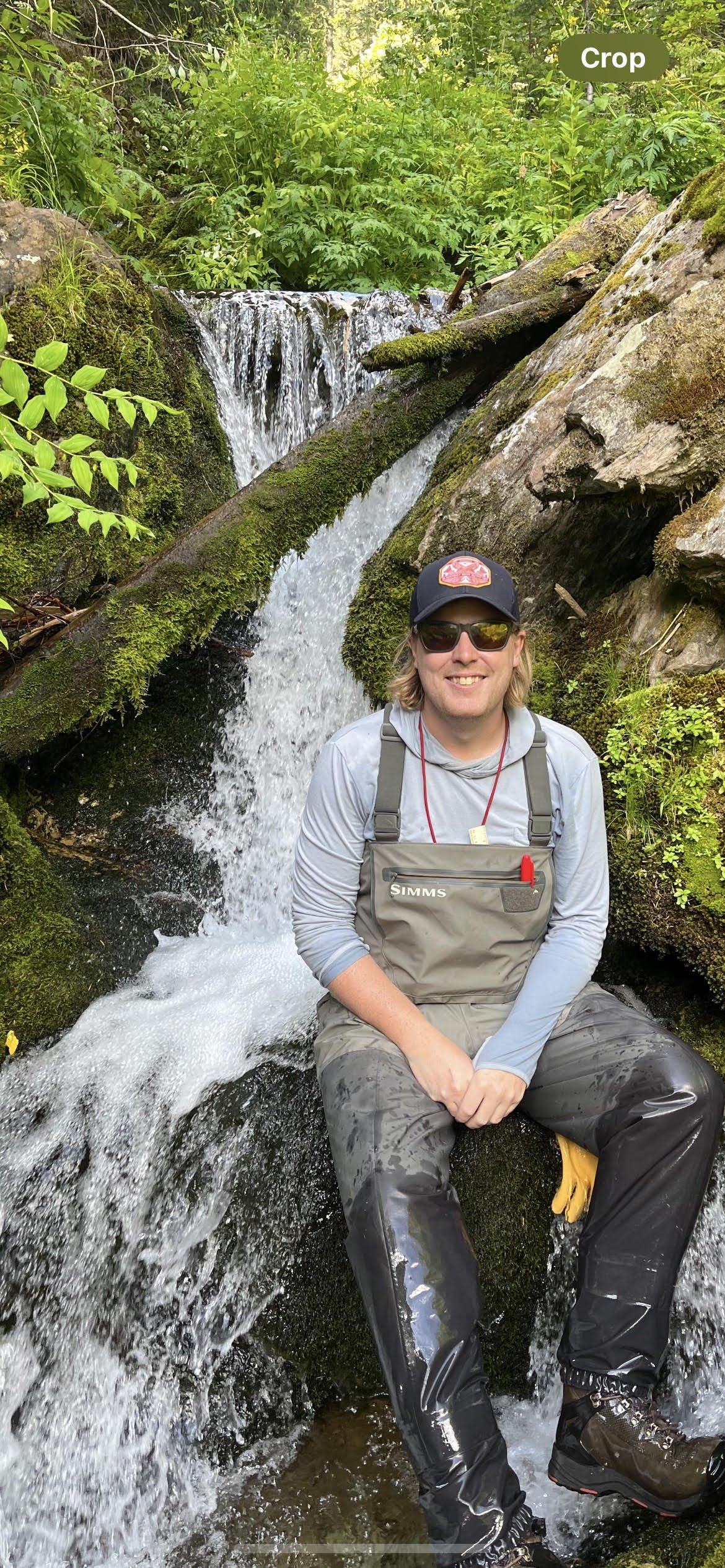
THOMAS HALSEY
THOMAS HALSEY, GREENVILLE WATER

“The land use/land cover in SC river basins is composed of about 60% forests, on average. Forest type, structure, age, and management intensity all influence watershed water quantity and quality at various degrees depending on local climate and topography in the southern U.S. Forests, particularly in headwaters. Forests benefit water resources by providing clean water, may recharge the root zone soil and slowly release water as sustained baseflow, and riparian forests can mitigate flood control in some cases, water related recreation.”
— Dr. Devendra Amatya (US Forest Service)

Devin Orr, the Natural Resources Protection Specialist at SCRWA and the Coordinator of the SCFWI.

Sierra Hylton, in charge of DHEC's Adopt-A-Stream in SC.

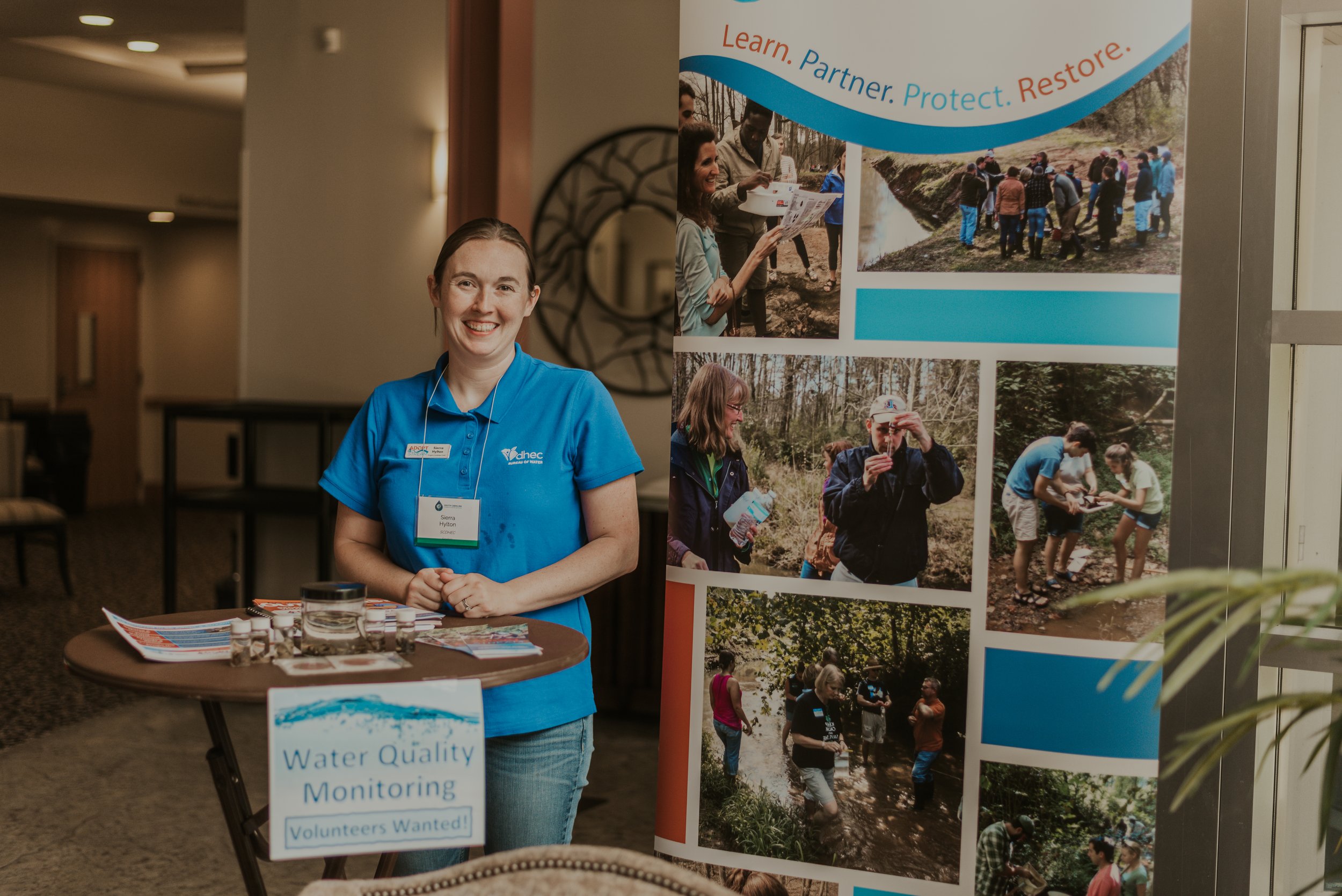
Adopt-A-Stream table.
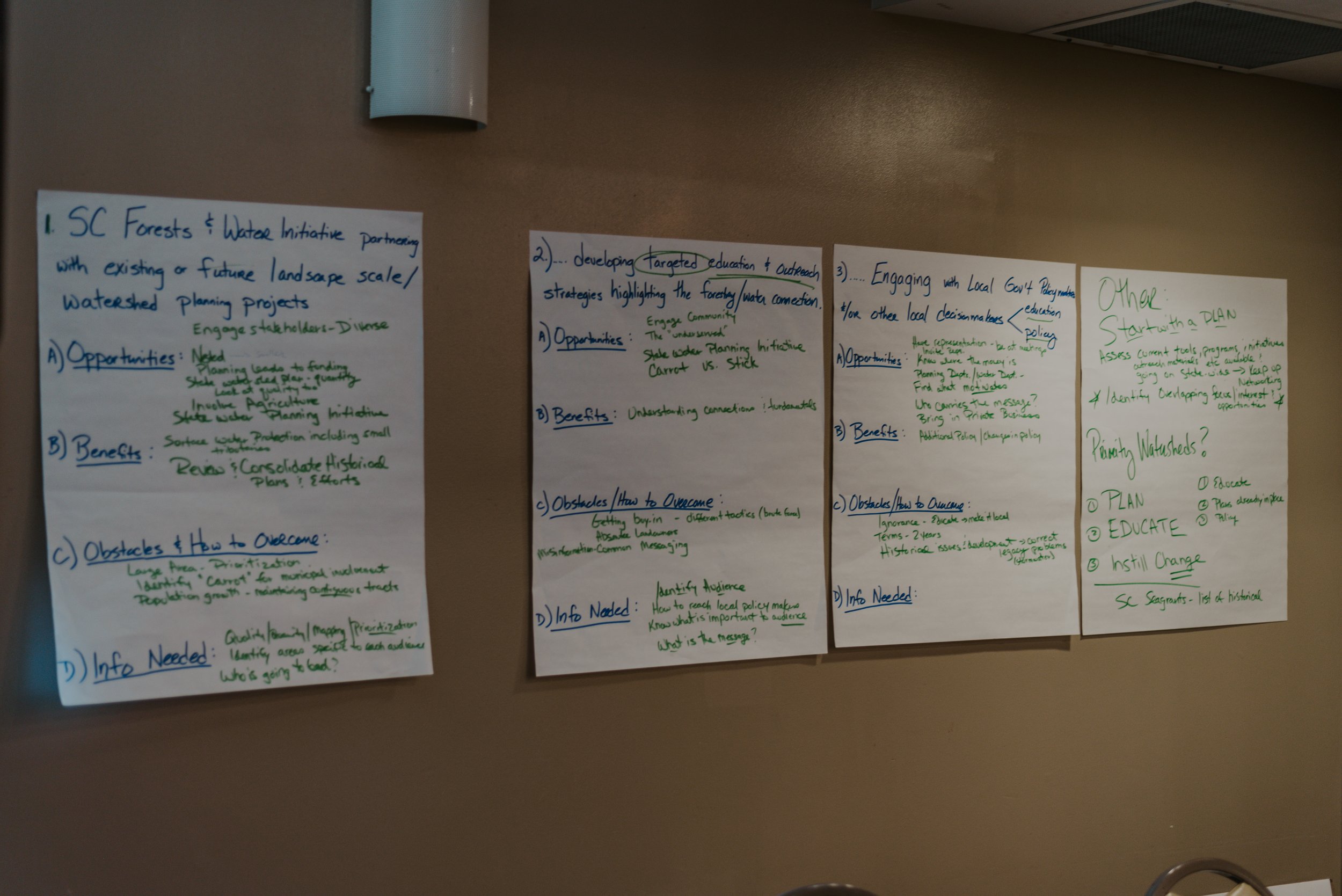
Notes from one of the 3 breakout sessions during the Consortium.


Two of our wonderful facilitators, Holly and Janae reviewing the actionable items formulated by the breakout sessions.
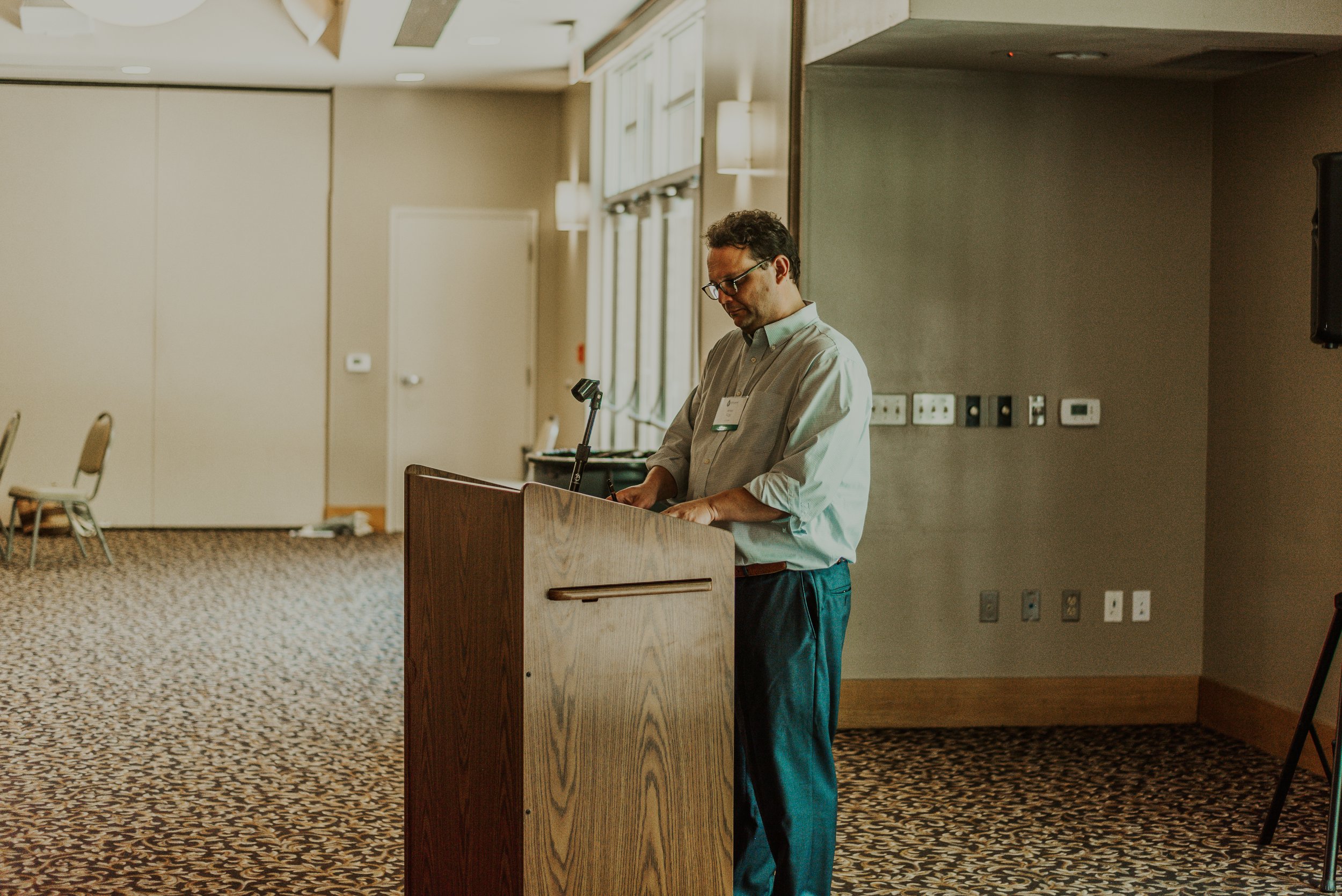
James Kilgo, the founder of the SCFWI.
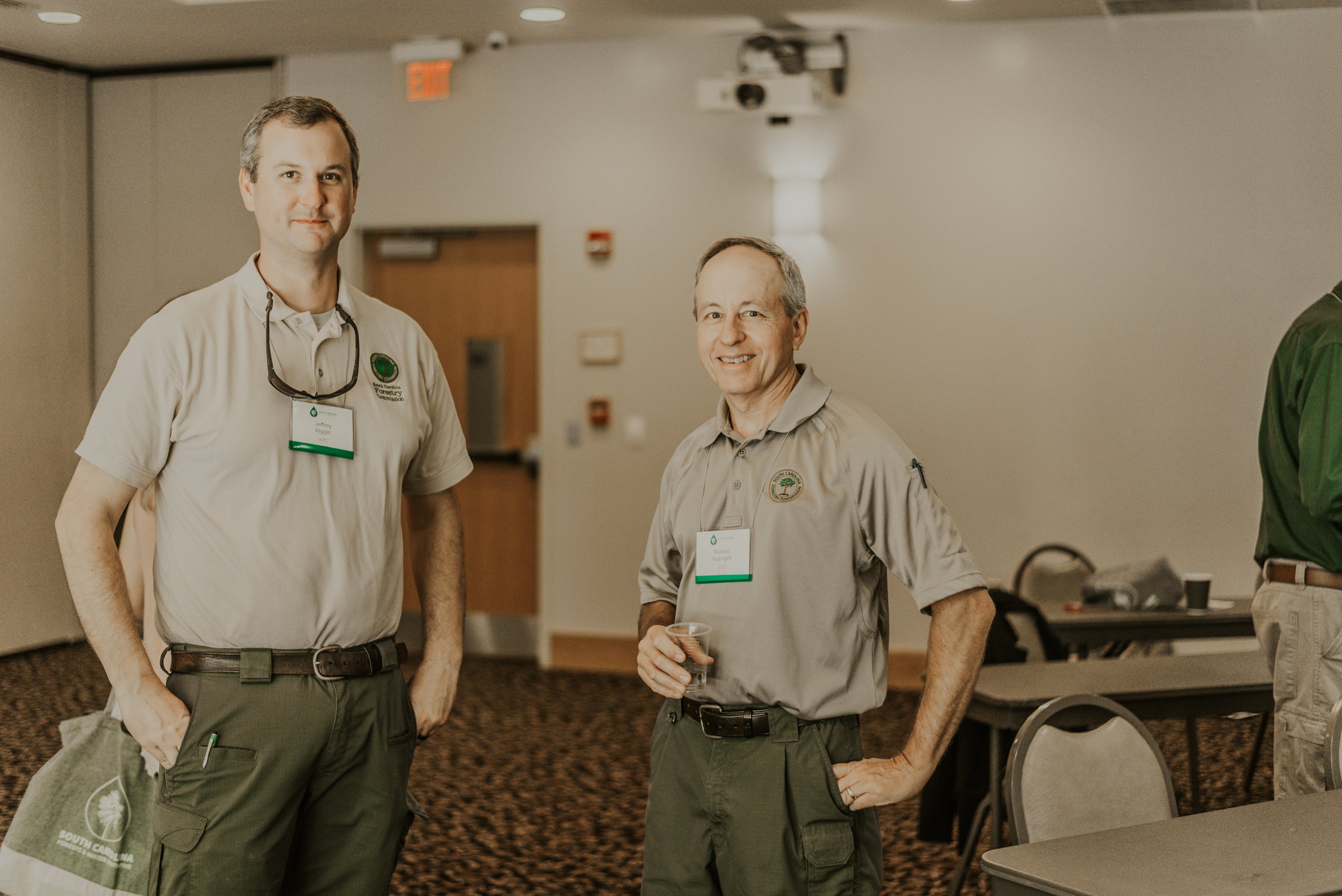
Two of the SCFC foresters who were in attendance at the event.


Janae and the lowcountry session notes.

Lyles and the sandhills breakout group.
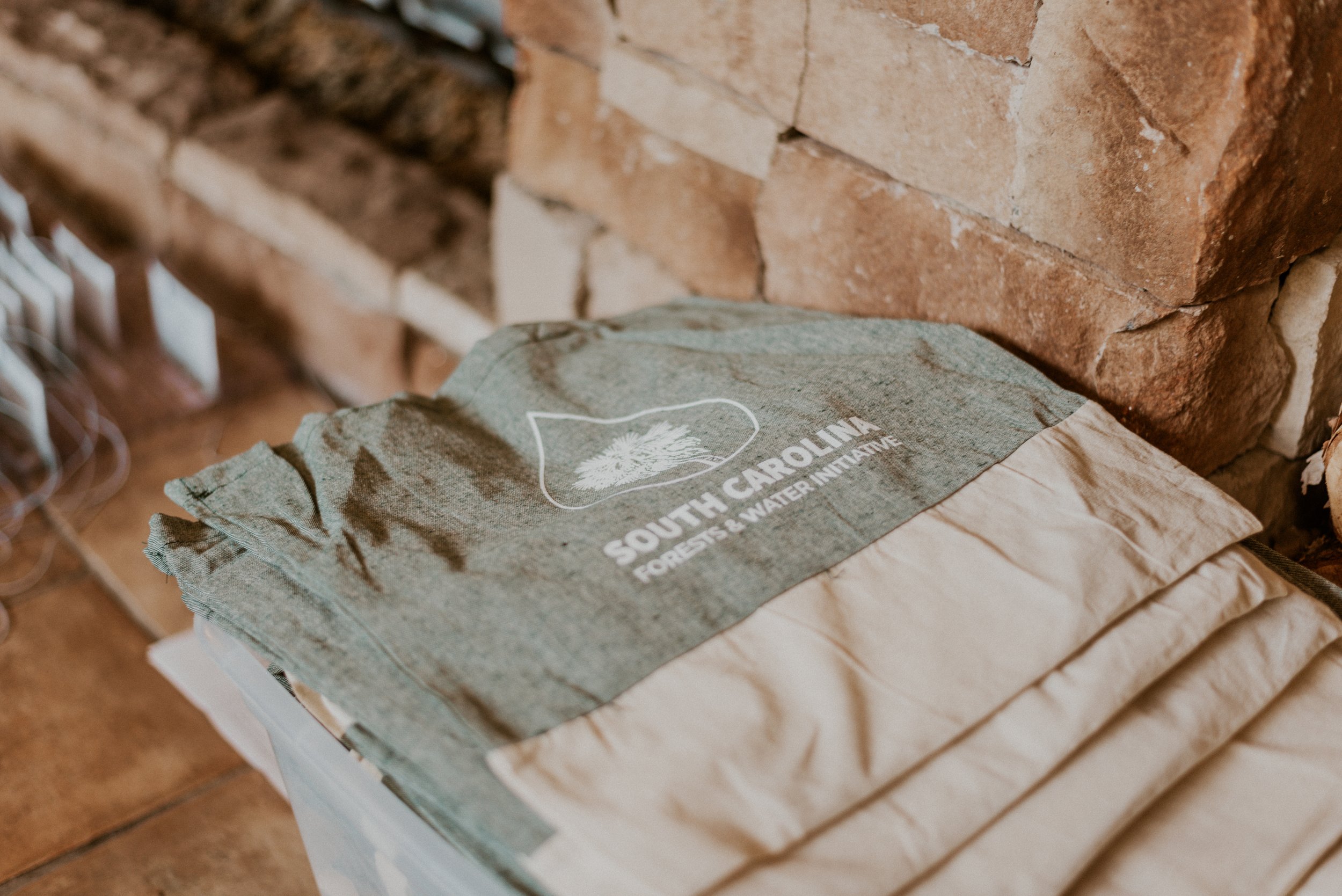
The SCFWI's new logo on the "party" favors.

Snacks!

Courtesy of Sierra Hylton.
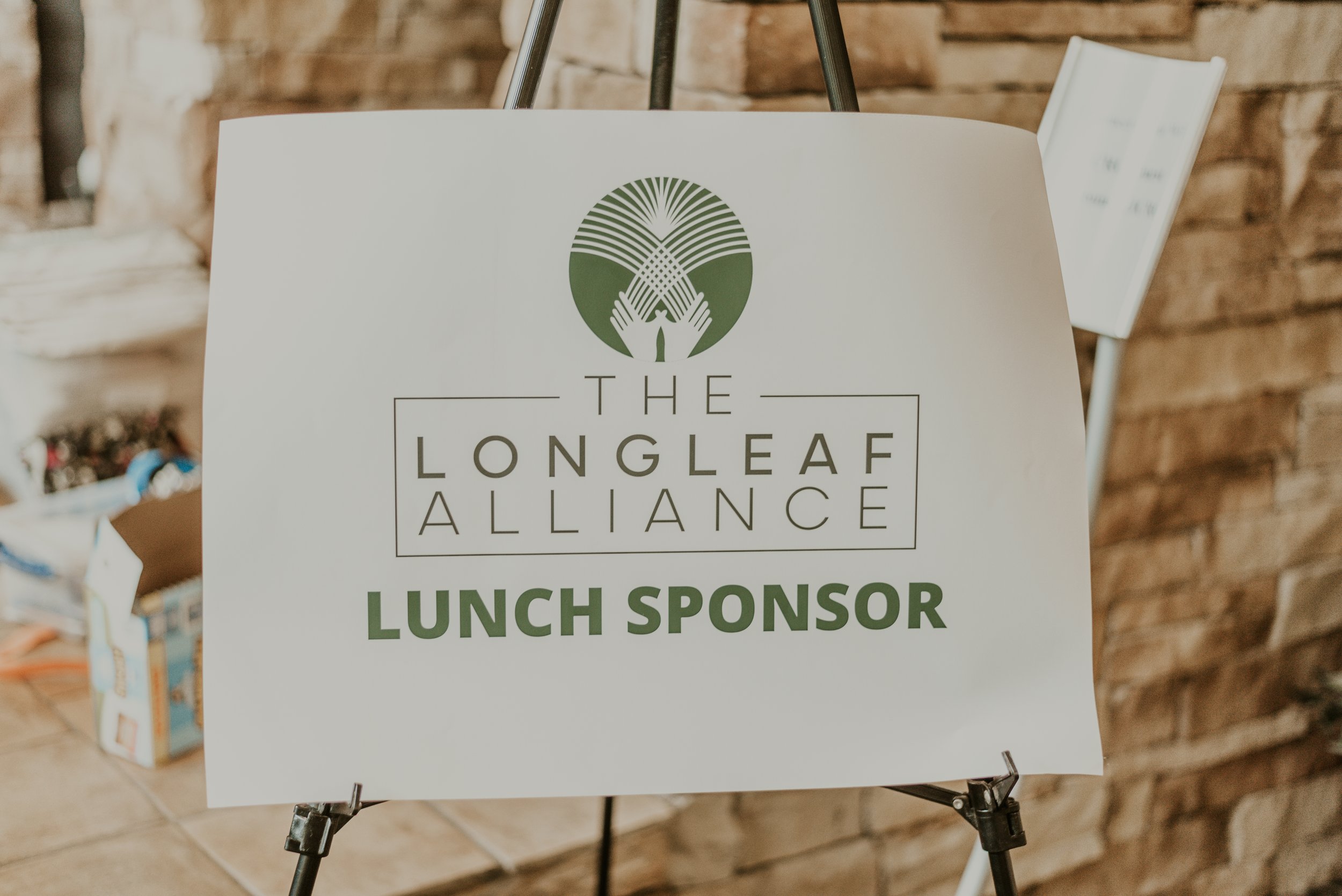
Thank you Lisa Lord and LLA for sponsoring lunch!

Guy Sabin.

Fellowship.

Devin Orr.
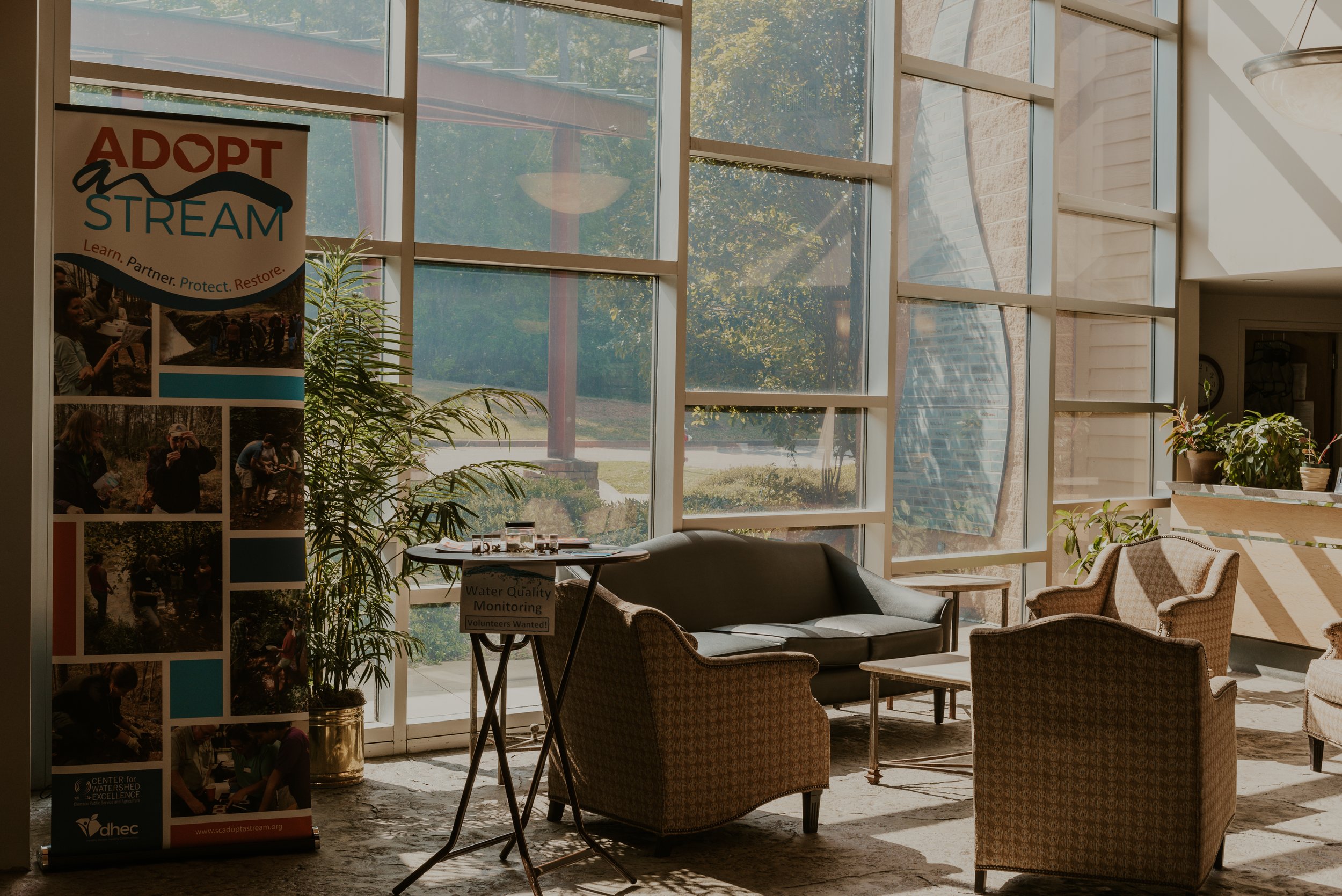
The venue.

The attendees.

Janae.
Clean Water Grows on Trees.

check out the 2023 South carolina forests & water consortium highlights



